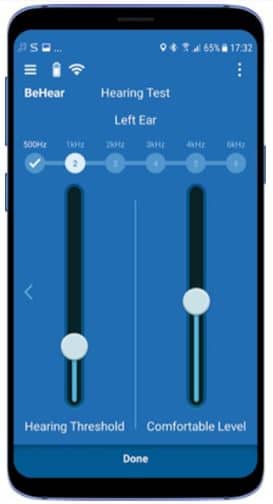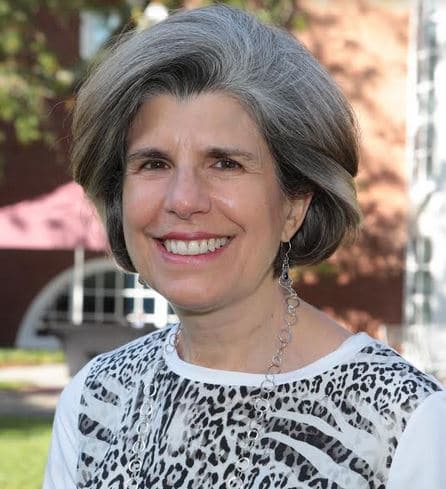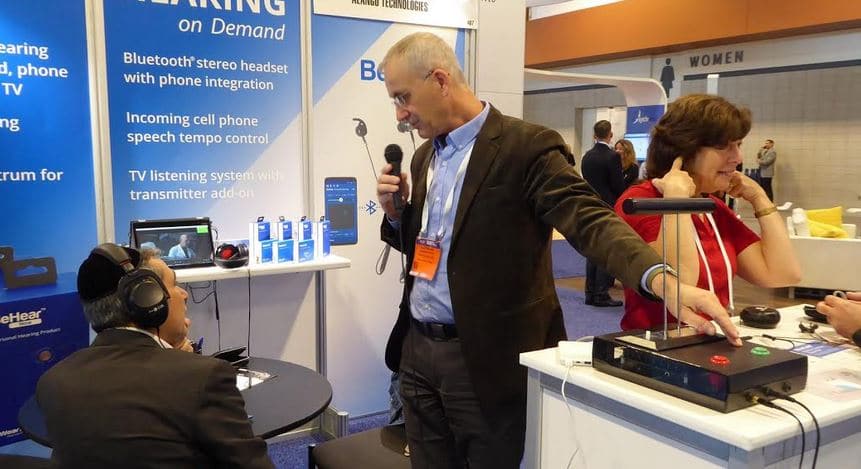With the FDA expected to publish initial guidelines for Over-the-Counter hearing aids as early as this fall, the time is now for audiologists to formulate their product and service strategies for responding to deregulation. My recommendation–as an expert in business strategy and patient engagement, a hearing health advocate, and a person with hearing loss—is that audiologists conduct market tests now using hearables, personal sound amplification devices (PSAPs) that typically retail for $500 or less. (See my article in the March issue of Audiology Practices on how to design and conduct a market test).
One example of an affordable, fully-featured hearable is Alango Technologies’ BeHear NOW. Alango plans to retail the BeHear NOW headset at $249, with general availability scheduled for this fall. At AAA 2018, the product caught my attention for its game-changing hearing assessment and revolutionary Easy Listen feature, which slows down speech during phone calls. Although my company, Auditory Insight, has submitted a marketing proposal to Alango (disclosure), I nonetheless want to share these two features because they are fundamental to the future of hearing care.

The BeHear smartphone app
The BeHear NOW wireless earphones amplify sounds for users based on a hearing assessment that users take with the accompanying app. While wearing the headphones, users move a slider up a notched bar until they hear the tone. “Each notch on the bar represents one decibel,” explained Ruth Bridger, Alango Marketing Director, while I took the assessment at Alango’s booth.
I discovered that once I identified the sound of the tone, I could edge the slider back down, hearing it at quieter amplitude than first detected. Then I picked the most comfortable loudness. First diagnosed with my hearing loss at age 6, I have walked into countless soundproofed booths for a test I consistently fail.
BeHear NOW’s self-paced test provoked minimal stress for me, potentially delivering more accurate results, echoing previous studies on the accuracy of self-fitting.
In addition, BeHear NOW has another feature not matched by the other hearables: Easy Listen, which allows users to slow down other parties’ speech dynamically during a phone call. Initially, I was skeptical. But when Bridger rattled off her childhood phone number at a very fast clip, I heard the numbers clearly, at a slower pace, the pitch of her voice unchanged. “We’re taking advantage of natural pauses in speech,” she explained.
Phone conversations are often among the most challenging hearing situations for people with hearing loss, because so many rely on speech-reading and facial cues. Yet simply amplifying the conversation doesn’t solve the problem. Instead, people with hearing loss need better clarity, exactly what the Easy Listen feature provides. The feature is aptly named because it takes away the stress of straining to hear on the phone.
BeHear NOW’s parent company, Israel-based Alango Technologies, develops sound enhancement technologies that are used in voice and audio systems, typically in the automotive and entertainment industries. The fact that the company is now porting its sound algorithms into affordable hearing assistance devices, combined with user-empowering features, offers an opportunity for audiologists to test lower-price point hearing products in their practices.
 Nancy M. Williams is President and Founder of Auditory Insight, a strategy and marketing consultancy in the hearing space. She leverages her expertise in new market development, patient engagement, and consumer insight, as well as her experiences as a hearing health advocate and person with hearing loss, to create a 360-degree perspective for companies including device manufacturers, biotherapy companies, payers, and private equity investors. Prior to founding Auditory Insight, she created and ran the patient engagement business for HPOne, working with Medicare Advantage payers to close care gaps and improve Star Ratings through patient outreach. A widely published writer and national speaker who has addressed thousands, she served on the Board of the Hearing Health Foundation for four years. She holds an MBA from Harvard Business School and a BA from Stanford University in Quantitative Economics, both with distinction.
Nancy M. Williams is President and Founder of Auditory Insight, a strategy and marketing consultancy in the hearing space. She leverages her expertise in new market development, patient engagement, and consumer insight, as well as her experiences as a hearing health advocate and person with hearing loss, to create a 360-degree perspective for companies including device manufacturers, biotherapy companies, payers, and private equity investors. Prior to founding Auditory Insight, she created and ran the patient engagement business for HPOne, working with Medicare Advantage payers to close care gaps and improve Star Ratings through patient outreach. A widely published writer and national speaker who has addressed thousands, she served on the Board of the Hearing Health Foundation for four years. She holds an MBA from Harvard Business School and a BA from Stanford University in Quantitative Economics, both with distinction.







